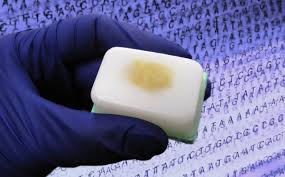
Molecular diagnostics has transformed modern medicine by enabling precise disease detection and personalized treatments. Among its key tools, Formalin-Fixed Paraffin-Embedded (FFPE) tissue blocks and slides preserve biological specimens, ensure integrity, and support accurate diagnostics and research. Recognizing their importance highlights their essential role in advancing pathology.
Preservation and Versatility in FFPE Technology
FFPE technology has become a cornerstone in histopathology and molecular diagnostics, offering a reliable method for preserving tissue samples. Embedding tissue in paraffin after formalin fixation ensures the retention of both morphological and molecular integrity. This makes the FFPE block vs slides comparison important when determining the best approach for long-term storage and future analysis.
The versatility of FFPE blocks and slides lies in their ability to be used across multiple diagnostic techniques. From histological staining to advanced genomic sequencing, the applications are vast. This flexibility ensures that the same preserved tissue can provide both morphological insights and molecular data without compromising quality.
Enhancing Accuracy in Molecular Studies
FFPE slides play an integral role in enhancing the precision of molecular diagnostics. They allow for detailed analysis of DNA, RNA, and proteins in preserved tissues. In oncology, for example, molecular profiling of tumors often begins with samples prepared from FFPE blocks or slides. These slides provide the foundation for identifying specific genetic mutations, biomarkers, or therapeutic targets.
The robust preservation of tissue architecture in FFPE slides also enables researchers and clinicians to correlate molecular findings with histopathological data. This dual approach is invaluable in diagnosing complex diseases and tailoring treatments for individual patients.
Advancements in Molecular Techniques Using FFPE Slides
The integration of FFPE slides into advanced molecular techniques has further elevated their significance. Technologies such as next-generation sequencing (NGS), in situ hybridization (ISH), and immunohistochemistry (IHC) rely heavily on the quality and preparation of FFPE slides. These cutting-edge methods allow for highly detailed molecular analyses, even in archived samples.
For instance, in the case of rare or archived specimens, FFPE slides offer the ability to extract molecular data without the need for fresh tissues. This capacity is particularly useful in retrospective studies, clinical trials, and biomarker research. Moreover, advancements in deparaffinization and extraction protocols ensure that even older samples yield reliable results.
Quality Preparation for Reliable Results
Accurate diagnostics begin with the preparation of slides. Poorly prepared samples can compromise molecular analysis and lead to inconclusive or misleading results. For this reason, standardized processes are vital in cutting, mounting, and staining. Ensuring quality during preparation minimizes variability, preserves molecular integrity, and improves the reliability of diagnostic and research outcomes.
This level of precision is particularly important in clinical settings where patient outcomes depend on accurate molecular diagnostics. Laboratories and research facilities must prioritize optimized preparation techniques to meet the stringent demands of modern healthcare.
Comprehensive Laboratory Support for FFPE Processing
Laboratories specializing in molecular diagnostics offer services like tissue fixation, embedding, sectioning, and FFPE slide preparation for histopathological and molecular analysis. They also provide advanced techniques such as immunohistochemistry (IHC), in situ hybridization (ISH), and DNA/RNA extraction, ensuring specimens meet the highest standards for reliable research and clinical results.
FFPE slides hold a pivotal role in molecular diagnostics by preserving biological specimens and enabling precise analysis. From histopathology to advanced genomic techniques, their applications are vast and critical for disease diagnosis, research, and personalized treatment. Whether exploring their integration into modern techniques or comparing FFPE block vs slides, their contribution to healthcare and scientific discovery remains unparalleled. By ensuring quality preparation and innovative usage, FFPE slides will continue shaping the future of diagnostics and research.
Write and Win: Participate in Creative writing Contest & International Essay Contest and win fabulous prizes.


